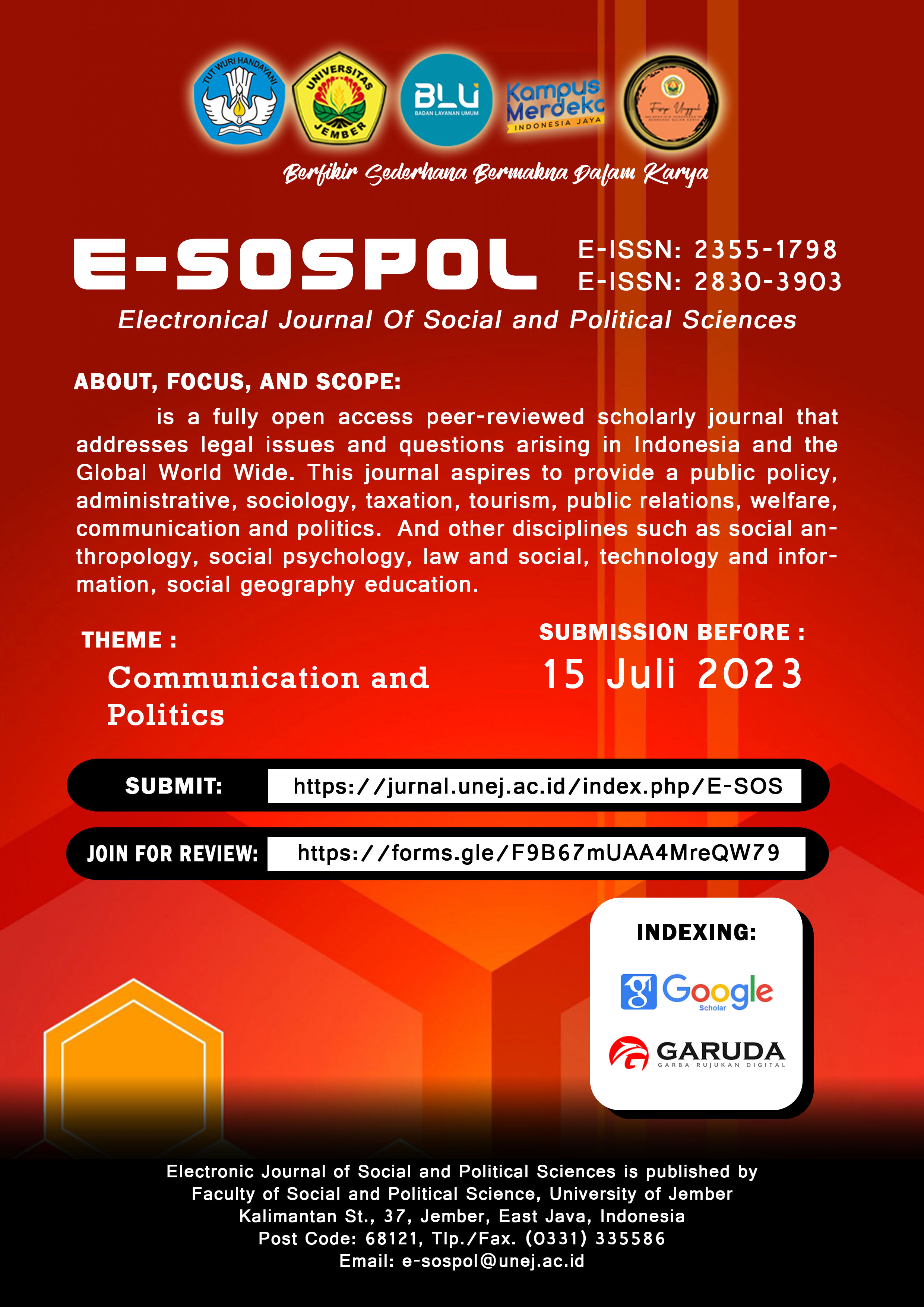Penyesuaian Pasangan Pernikahan Hasil Ta’aruf
Abstract
Abstract
Marriage by ta'aruf (an introduction of the couples based on Islamic values) has lack of familiarity with either the spouse’s behavior or character because the process is short and the interaction is limited, so that people who perform ta'aruf are likely to face family problems, and their inability to adjust to these issues will tend to led to divorce. The purpose of this research was to describe the problems of the married couples by ta'aruf and the adjustment mechanism of couples married by ta'aruf in dealing with family problems that are much discussed in Family Sociology. This research used a qualitative descriptive method, and the research area was in Jember Regency. Informants were determined by purposive sampling, and data were collected by observation, interview, and documentation. Data validity test applied triangulation technique. Data analysis was by collecting all data, sorting data, interpreting data and theory, presenting data and drawing conclusions. The research results showed that the couples married by ta'aruf had adjustment that marriage is a means to improve obedience to God, meaning that the interactions built are not only on the basis of the rights of and obligations of the spouse but also as a form of obedience to God; it is not a matter of unity and bound by the word of marriage, but there is a demand of rights, obligations and responsibilities that must be carried out, which are not only accounted to the spouse but also to God.
Penulis yang mengusulkan naskahnya untuk dapat diproses penerbitannya pada e-SOSPOL dianggap telah menyetujui beberapa hal sebagai berikut:
1. Penulis tidak dapat menarik naskah yang telah usulkan untuk diproses hingga mendapat jawaban dari Ketua Dewan Penyunting atas status naskah artikel ilmiahnya (diterima atau ditolak untuk diterbitkan).
2. Penerbit tidak bertanggung jawab terhadap kasus plagiasi atas artikel yang terbit pada e-SOSPOL
3. Penerbit tidak bertanggung jawab atas data dan isi dari artikel yang diterbitkan pada e-SOSPOL, dan sepenuhnya merupakan tanggung jawab penulis.






.png)

